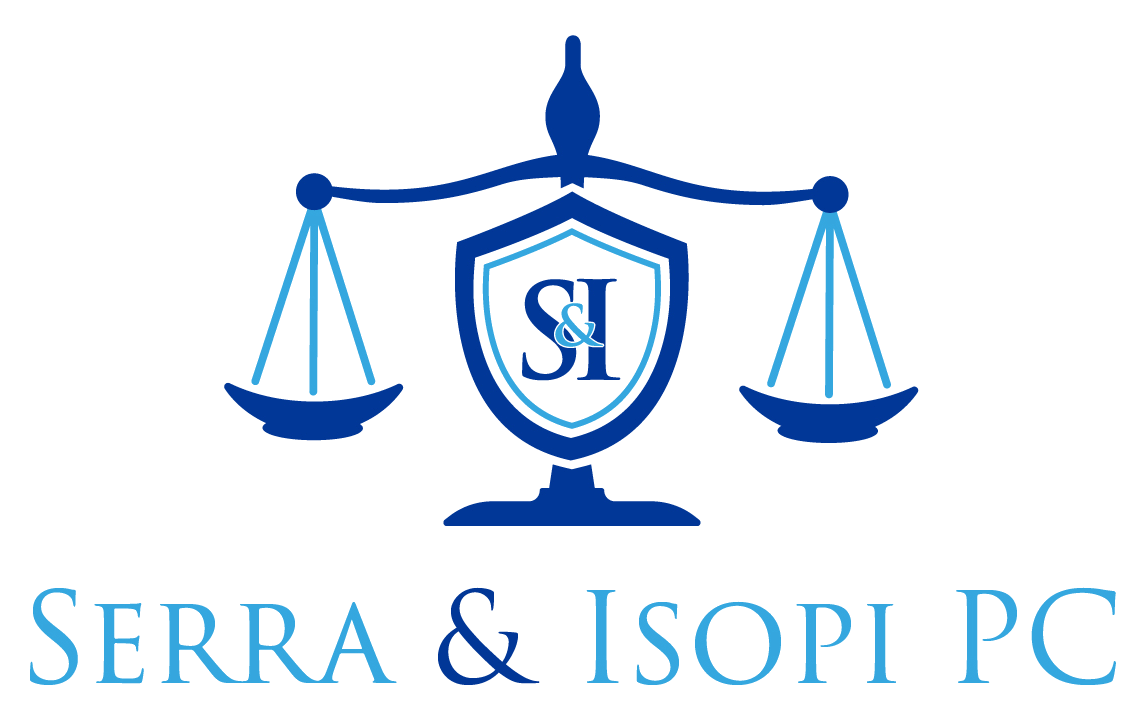New Paragraph
Call Today for a Free Phone Consultation!
Serving Sterling Heights and the Tri-County Area
Serving Sterling Heights and the Tri-County Area
Estate Planning
Estate Planning
Have you made arrangements for your property to smoothly transfer to your loved ones at your death? Have you named guardians for your minor children and/or provided for your loved ones in case you become incapacitated?
If you don't think you can afford a complex estate plan now or don't believe you have sufficient assets to do so, think again. Good estate planning often means more to families with modest assets, because they can afford to lose the least. For a young family or single adult, that may mean preparing a Trust, Will, Deed and/or Power of Attorney for your assets and health care decisions. Let your planning develop and expand as your needs and family change, and your financial situation improves. An experienced attorney will be able to provide critical guidance and peace of mind that your documents are prepared properly.
If you don't think you can afford a complex estate plan now or don't believe you have sufficient assets to do so, think again. Good estate planning often means more to families with modest assets, because they can afford to lose the least. For a young family or single adult, that may mean preparing a Trust, Will, Deed and/or Power of Attorney for your assets and health care decisions. Let your planning develop and expand as your needs and family change, and your financial situation improves. An experienced attorney will be able to provide critical guidance and peace of mind that your documents are prepared properly.
The Law Offices of Serra & Isopi, P.C., have been providing estate planning services to thousands of clients to assist them in providing a smooth transition for transfer of assets at their death, to provide care for their children and avoid probate court, estate taxes and other costs.
We can prepare, at a fair price, Trusts, Wills, Powers of Attorney, health care directives and deeds. We can give you the guidance that you need to feel comfortable that your family and assets will be protected in the event of death or disability. Call us now for a free phone consultation.
We can prepare, at a fair price, Trusts, Wills, Powers of Attorney, health care directives and deeds. We can give you the guidance that you need to feel comfortable that your family and assets will be protected in the event of death or disability. Call us now for a free phone consultation.
Wills and Trusts
What is a Will?
A Will is a legal document that allows you to name a guardian for your child and specify who will inherit your property after you die. Without a Will, you will have no say in what happens to your property. Even if you feel you have very little by way of valuable assets, setting up a Will early can protect your family from complications, and additional heartache should the worst happen unexpectedly. A Will offers you peace of mind, especially when it comes to sentimental items and care for minor children. A Will however does not avoid probate. The person you appoint to be in charge, the Personal Representative, has no authority to act until he petitions the Probate court and obtains authority to do so. A Living Trust will avoid Probate Court.
A Will is a legal document that allows you to name a guardian for your child and specify who will inherit your property after you die. Without a Will, you will have no say in what happens to your property. Even if you feel you have very little by way of valuable assets, setting up a Will early can protect your family from complications, and additional heartache should the worst happen unexpectedly. A Will offers you peace of mind, especially when it comes to sentimental items and care for minor children. A Will however does not avoid probate. The person you appoint to be in charge, the Personal Representative, has no authority to act until he petitions the Probate court and obtains authority to do so. A Living Trust will avoid Probate Court.
What is a Trust?
A Living Trust is an agreement between the creator of it called the Settlor or Grantor and the Trustee, the person in charge. The creator of the Trust is usually also the Trustee until his or her death, then a named Successor Trustee takes over. The Trust agreement states how the Trust will operate before and after the Grantor's death and what will happen with the assets of the Trust.
A Trust enables you to create a separate legal entity to protect your property and assets from probate, taxes and public scrutiny. It is designed to hold and invest property for the benefit of you and your beneficiary upon your death. A Revocable Trust gives you full control of the assets you place in trust and peace of mind the property will go to your intended beneficiaries without Probate court involvement.
With a Trust, after your death, you can delay payment to a beneficiary or put conditions on payment to a beneficiary for reasons such as age, incompetence, disability, gambling problem and/or drug or alcohol addiction. A Trust will give you peace of mind that your assets will not be wasted or go to a person you never intended.
Can a Trust Be Changed?
As long as the Grantor is alive and the Trust is a revocable one the Grantor can alter, change it or void it. Assets can be placed in it and taken out of the Trust. Through an Amendment, the Trust can be altered, including who is named as a beneficiary and Successor Trustee, and under what conditions they can act and/or receive the assets.
Is the Revocable Trust Taxable?As long as the Grantor is alive, no separate tax return needs to be filed, nor tax identification obtained. The Grantor's Social Security Number is used. The Grantor will continue to report on his or her individual tax return income, deductions, dividends, gains and losses, and interest. There is no legal requirement to keep a separate record of assets in the Trust during the Grantor's lifetime, but it is a good idea to keep a record so that the Successor Trustee, after the death of the Grantor, who is the initial Trustee can administer the Trust assets.
How Do I Place Assets in the Trust?
The Trust agreement only applies to assets in the Trust. In order for the assets to be in the Trust, the Trust has to own the asset or be named a beneficiary of an asset. In the case of the Trust being a beneficiary, the asset comes into the Trust on the death of the Grantor.
The Grantor would need to do a Deed placing real estate into the Trust. The new owner, for example, would be John Smith, Trustee of the John Smith Trust dated 3/1/2014. Stocks, bonds, savings accounts and other similar accounts not in retirement accounts would also have to be titled in the name of the Trust. Insurance policies and annuities would name the Trust as the beneficiary.
The Law Offices of Serra & Isopi, P.C. can work with you to establish a will and trust, no matter how large or small your assets might be. Contact us today for a free phone consultation.
A Living Trust is an agreement between the creator of it called the Settlor or Grantor and the Trustee, the person in charge. The creator of the Trust is usually also the Trustee until his or her death, then a named Successor Trustee takes over. The Trust agreement states how the Trust will operate before and after the Grantor's death and what will happen with the assets of the Trust.
A Trust enables you to create a separate legal entity to protect your property and assets from probate, taxes and public scrutiny. It is designed to hold and invest property for the benefit of you and your beneficiary upon your death. A Revocable Trust gives you full control of the assets you place in trust and peace of mind the property will go to your intended beneficiaries without Probate court involvement.
With a Trust, after your death, you can delay payment to a beneficiary or put conditions on payment to a beneficiary for reasons such as age, incompetence, disability, gambling problem and/or drug or alcohol addiction. A Trust will give you peace of mind that your assets will not be wasted or go to a person you never intended.
Can a Trust Be Changed?
As long as the Grantor is alive and the Trust is a revocable one the Grantor can alter, change it or void it. Assets can be placed in it and taken out of the Trust. Through an Amendment, the Trust can be altered, including who is named as a beneficiary and Successor Trustee, and under what conditions they can act and/or receive the assets.
Is the Revocable Trust Taxable?As long as the Grantor is alive, no separate tax return needs to be filed, nor tax identification obtained. The Grantor's Social Security Number is used. The Grantor will continue to report on his or her individual tax return income, deductions, dividends, gains and losses, and interest. There is no legal requirement to keep a separate record of assets in the Trust during the Grantor's lifetime, but it is a good idea to keep a record so that the Successor Trustee, after the death of the Grantor, who is the initial Trustee can administer the Trust assets.
How Do I Place Assets in the Trust?
The Trust agreement only applies to assets in the Trust. In order for the assets to be in the Trust, the Trust has to own the asset or be named a beneficiary of an asset. In the case of the Trust being a beneficiary, the asset comes into the Trust on the death of the Grantor.
The Grantor would need to do a Deed placing real estate into the Trust. The new owner, for example, would be John Smith, Trustee of the John Smith Trust dated 3/1/2014. Stocks, bonds, savings accounts and other similar accounts not in retirement accounts would also have to be titled in the name of the Trust. Insurance policies and annuities would name the Trust as the beneficiary.
The Law Offices of Serra & Isopi, P.C. can work with you to establish a will and trust, no matter how large or small your assets might be. Contact us today for a free phone consultation.
Power Of Attorney
In the event you are unable to manage your financial affairs, a power of attorney may be appointed, granting a person the power to handle financial and legal decisions. This avoids that person from having to petition Probate Court to handle your financial affairs. That person is called a Conservator. There are a number of reporting requirements for the Conservator including disclosing your assets for anyone to see if they wish to.

There are three types of power of attorney:
Contact The Law Offices of Serra & Isopi, P.C. today to discuss your options regarding POWER of ATTORNEY.
- Durable Power of Attorney - Is in effect immediately upon signing. Remains in effect during incompetence or other disability.
- Standby Power of Attorney - Is triggered when there is an incapacity to manage affairs.
- Temporary Power of Attorney - Generally applies only if an emergency arises. Also given by parents to another relative or adult who is temporarily taking care of their child or children.
Contact The Law Offices of Serra & Isopi, P.C. today to discuss your options regarding POWER of ATTORNEY.
Contesting a Will And/or Trust
Mental Capacity
A person who signs a Will and/or Trust must have sufficient mental capacity to do so. To be considered to have sufficient mental capacity at that time they have to:
A person who signs a Will and/or Trust must have sufficient mental capacity to do so. To be considered to have sufficient mental capacity at that time they have to:
- Had the ability to understand that he or she was providing for the disposition of his or her property after his or her death, and
- Had the ability to know the nature and extent of his or her property, and
- Know the person and/or persons who he or she is close to or related to who would reasonably be expected to receive a share of their estate, and
- Had the ability to understand in a reasonable manner the general nature and effect of his or her act in signing the Will and/or Trust.

The fact that a person may be suffering from a mental condition, such as Alzheimer's and/or Dementia does not automatically mean they were unable to have the mental capacity to sign a will and/or trust, if they meet the criteria above.
Undue Influence
Even if the person had the mental capacity to sign a Will and/or Trust, the Will and/or Trust could be found invalid if the signer was unduly influenced in signing it.
The undue influence must be of a kind that it overpowers the signer's free will and prevents the signer doing as the signer pleases with his or her property.
The influence can take the form of force, threats, flattery, persuasion, fraud, misrepresentation, physical coercion and/or moral coercion.
A Will and/or Trust that results from undue influence is one which the signer would not have made but for the undue influence.
Fraud
A Will and/or Trust is not valid if it was signed as a result of fraud. That is, there was a misrepresentation of a material fact to the signer and he or she relied on it and was influenced by the misrepresentation in disposing of his or her property.
If you need to contest a Will and/or Trust, you will need an attorney who understands the complicated legal challenge ahead. If you believe a friend and/or relative did not have sufficient capacity, was unduly influenced and/or was fraudulently induced to sign a Will and/or Trust, call us for a free phone consultation.
Contact The Law Offices of Serra & Isopi, P.C. today for a free consultation.
Undue Influence
Even if the person had the mental capacity to sign a Will and/or Trust, the Will and/or Trust could be found invalid if the signer was unduly influenced in signing it.
The undue influence must be of a kind that it overpowers the signer's free will and prevents the signer doing as the signer pleases with his or her property.
The influence can take the form of force, threats, flattery, persuasion, fraud, misrepresentation, physical coercion and/or moral coercion.
A Will and/or Trust that results from undue influence is one which the signer would not have made but for the undue influence.
Fraud
A Will and/or Trust is not valid if it was signed as a result of fraud. That is, there was a misrepresentation of a material fact to the signer and he or she relied on it and was influenced by the misrepresentation in disposing of his or her property.
If you need to contest a Will and/or Trust, you will need an attorney who understands the complicated legal challenge ahead. If you believe a friend and/or relative did not have sufficient capacity, was unduly influenced and/or was fraudulently induced to sign a Will and/or Trust, call us for a free phone consultation.
Contact The Law Offices of Serra & Isopi, P.C. today for a free consultation.
Probate
Probate is a court-supervised process of transferring property to the intended recipients, following the death of the owner. The goal of probate is to re-title and otherwise transfer a descendant's property to his or her heirs or other intended recipients, after paying the debts of the estate. The probate process typically involves the following general steps:
- Hiring an attorney
- Opening of the estate with the probate court
- Presentation of the Will (if there is one) to the court
- Appointment, by the court, of a personal representative of the estate
- Taking and reporting of the inventory of assets of the estate
- Payment of debts of the estate and settlement of similar matters
- Distribution of the assets of the estate to intended or legally entitled recipients
- Order of discharge from the court; closing of the estate

Limited Advantages of Probate
Major Disadvantages of Probate
Probate estate planning with an attorney can negate the need for probate court, through Trusts, beneficiary designations and more. We can discuss estate planning measures to avoid the complication of probate in the distribution of your Will and execution of your wishes, or we can assist you in dealing with probate for a loved one. Contact The Law Offices of Serra & Isopi, P.C. today for a free consultation.
- No planning: does not require any advance planning
- Public Records: in some limited instances, an individual may desire a public record of the distribution of their assets
- Family Quarrels: probate represents a formal adjudicatory process which may be desirable when family members are at odds with one another over assets of the estate.
Major Disadvantages of Probate
- Length: typically 7-12 months from death to discharge of the estate.
- Cost: attorney fees, filing, publication, and inventory fees
- Hassle: length/cost, procedure and court filings requiring ongoing attention
- Privacy: probate is public record, accessible to any and all.
Probate estate planning with an attorney can negate the need for probate court, through Trusts, beneficiary designations and more. We can discuss estate planning measures to avoid the complication of probate in the distribution of your Will and execution of your wishes, or we can assist you in dealing with probate for a loved one. Contact The Law Offices of Serra & Isopi, P.C. today for a free consultation.
Thank you for contacting us.
We will get back to you as soon as possible.
We will get back to you as soon as possible.
Oops, there was an error sending your message.
Please try again later.
Please try again later.
Sterling Heights Office
Serra & Isopi
43455 Schoenherr Rd.
Suite 7
Sterling Heights, MI 48313
Phone: (586) 323-4400
Free Initial Phone Consultation
43455 Schoenherr Rd.
Suite 7
Sterling Heights, MI 48313
Phone: (586) 323-4400
Free Initial Phone Consultation
Warren Office
Serra & Isopi
29199 Ryan Road
Warren, MI 48092
Just North of 12 Mile
Phone: (586) 323-4400
29199 Ryan Road
Warren, MI 48092
Just North of 12 Mile
Phone: (586) 323-4400
Office Hours
Mon-Fri
9:00 AM - 5:00 PM
Sat-Sun
Closed
Be the first to review us
Your feedback is important!
9:00 AM - 5:00 PM
Sat-Sun
Closed
Be the first to review us
Your feedback is important!
Content, including images, displayed on this website is protected by copyright laws. Downloading, republication, retransmission or reproduction of content on this website is strictly prohibited. Terms of Use
| Privacy Policy




